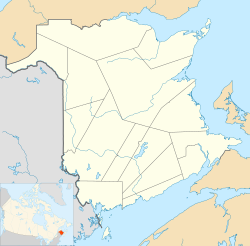Utopia | |
|---|---|
| Coordinates: 45°08′52″N66°46′17″W / 45.14778°N 66.77139°W | |
| Country | |
| Province | |
| County | Charlotte |
| Parish | Saint George |
| Electoral Districts Federal | New Brunswick Southwest |
| Provincial | Charlotte-The Isles |
| Government | |
| • Type | Local service district |
| Time zone | UTC-4 (AST) |
| • Summer (DST) | UTC-3 (ADT) |
| Postal code(s) | |
| Area code | 506 |
| Highways | |
Utopia is a Canadian unincorporated community in Charlotte County, New Brunswick. [1]
